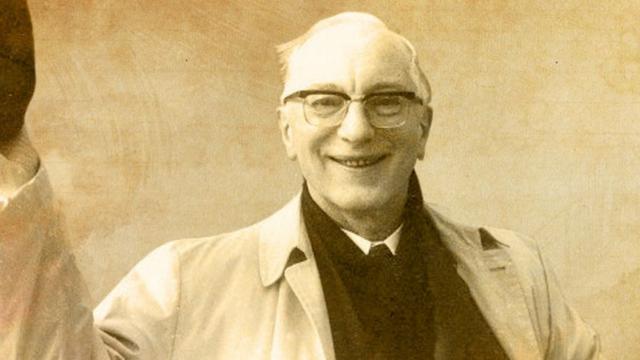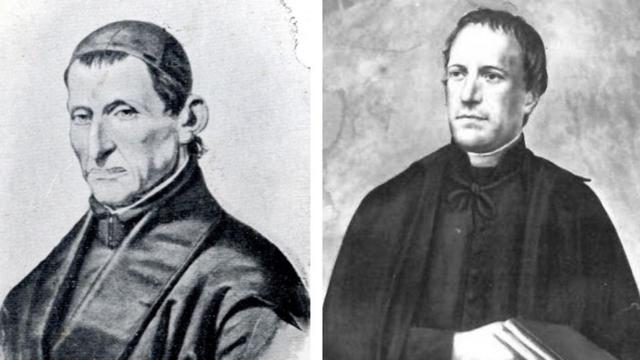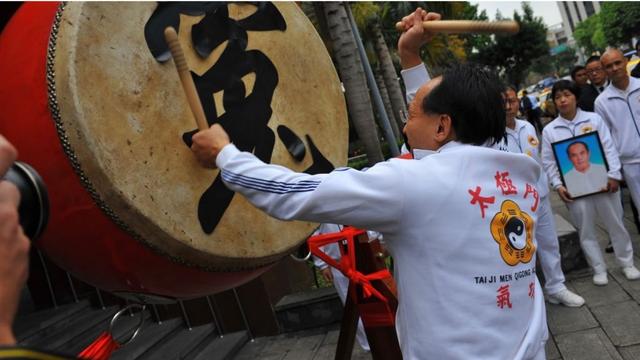The injustice happening in Taiwan is an example of how ideology and personal interests of rogue bureaucrats corrupt the concept of social justice.
by Marco Respinti*
*Conclusions of the webinar “Social Justice, Tax Reform, and the Tai Ji Men Case,” co-organized by CESNUR and Human Rights Without Frontiers on February 20, 2023, World Day of Social Justice.

The concept of social justice is simple. It is the ideal of establishing a just society among human beings, the first and basic tenet of which is to avoid any abuse of power, direct or indirect. Achieving social justice is, however, much more difficult.
Probably, social justice is the most ancient communal, hence political, ideal of humanity. No one would in fact say the opposite—or dare say the opposite. We never hear a political system, a state, a regime, or an individual involved in social business stating that their program is to establish social injustice. Even the most unjust political regimes, past and present, claim they are committed to social justice.
Although no one can theoretically deny that a person can do evil for the sake of evil, in full conscience, generally both individual politicians and political regimes present their programs and actions, even the most horrible, claiming they sincerely believe that these plans promote the common good.
Those who do evil while claiming it is good can be divided into two categories: blatant frauds and people in good faith. Both lie. Frauds want others to believe their lies, and people in good faith believe their own lies. While the first category, frauds, is the most cynical, the second, people in good faith, is idealistic. But idealism for that kind of people means fanatism.
It is clearly the case of ideologies, that turn into “ideocracies” when they take power. German American political philosopher Eric Voegelin (1901–1985) brilliantly discussed the topic in his 1938 “Die politischen Religionen,” or “The Political Religions,” now republished in volume 5 of “The Collected Works of Eric Voegelin” (1999) by University of Missouri Press.
Ideologies and ideocracies conserve the total dedication of a true spiritual faith, but they include a false relationship between human beings and the Absolute. Most of them are variations of materialism. This is why ideologies can propose the most mortifying folly with no shame, and ideocracies can perpetrate the most horrendous crimes without embarrassment. They may even justify bloodshed as a “reasonable” price for the final liberation of human beings that they call “social justice.”
Yet, social justice remains a key concept of communal life and is needed to achieve peace among nations. This is why it is perfectly adequate to discuss social justice in relation to Tai Ji Men. In fact, Tai Ji Men and FOWPAL, the peace organization that Tai Ji Men’s Shifu (Grand Master), Dr. Hong Tao-Tze, founded and promotes, constantly and tirelessly work for mutual understanding and universal love.
First, though, we need to know what social justice truly is. Toward this goal, the contribution given by two 19th-century authors is unvaluable. They are both Italian and both Roman Catholic priests. Both are also much neglected, or at least are often misrepresented. They are interesting, though, because they both served the cause of defining social justice, while their philosophical approaches diverged and were in some ways even opposed. They are Father Luigi Taparelli d’Azeglio (1793–1862), a Jesuit, and Father Antonio Rosmini Serbati (1797–1855), founder of the Institute of Charity, whose members are named after him “Rosminians.”

In 2013, noted Argentinian American economist Alejandro A. Chafuen had the occasion to thin out the fog surrounding Taparelli and Rosmini in a remarkable article aimed at clarifying, and even vindicating, the true meaning of social justice. The article was published in no less a magazine than “Forbes,” the world-famous business publication.
“Nobel Laureate F.A. Hayek,” Chafuen wrote, “was correct in pointing out that the term ‘social justice’ became widely used after a noted Jesuit, Luigi Taparelli d’Azeglio (1793–1862), used it in what was the most important Natural Law treatise during the 19th century in the Latin language world.”
“Taparelli’s book,” the Argentinian American economist continued, “was translated into Spanish and French, but never into English. Perhaps that explains why Hayek made a mistake by implying that Taparelli used the term in the same corrupted, but popular, interpretation that sees social justice as ‘taking from the rich and giving to the poor.’” In fact, Chafuen explained, “Taparelli belonged to a rich tradition where social justice has little or nothing to do with redistribution by government. It has more to do with order in society and with the justice that goes beyond courtroom justice.”
Let’s interpret Chafuen’s remarks in its deepest and broader sense: social justice has little or nothing to do with interference by abusive powers, be it from a government, a rogue bureaucrat, an ideological faction, or an organized group. As Taparelli made clear, Chafuen argued, the “justice” implied in “social justice” is not only what the law establishes. It does include the strict, and even technical, legal aspects of the law, but it is chiefly a matter of social concord. It is philosophical before being legal; it is spiritual in nature.

As to the second authority, Rosmini, he, Chafuen succinctly noted, “had similar views on this topic.” Taparelli and Rosmini would deserve much closer study. Wishing this can soon come true, let me introduce a final consideration on the topic through a quote and an exercise in its usability.
The quote is: “Society ensures social justice when it provides the conditions that allow associations or individuals to obtain what is their due, according to their nature and their vocation. Social justice is linked to the common good and the exercise of authority.”
The usability of this quote calls Tai Ji Men in. Tai Ji Men is a spiritual path that puts human conscience at the center of everything. Its aim is promoting a better way of life among human beings and nations. The usability of the previous quote in connection to Tai Ji Men also calls the Tai Ji Men case in.
The Tai Ji Men case is an unbelievable example of social injustice that went on for more than 26 years since December 19, 1996, although several courts of law have ruled that all charges against that movement are unsustainable.

So (and now I literally apply the previous quote to Tai Ji Men), for almost 27 years Tai Ji Men has been denied “the conditions that allow” individuals associated with that movement “to obtain what is their due, according to their nature and their vocation” as human beings endowed with certain unalienable rights.
Rogue and corrupt bureaucrats, claiming to know better as ideologues and ideocrats always do, acted as fanatical zealots for evil. They presented evil as good, and imposed a distorted concept of social justice, based on a blatant injustice, on Tai Ji Men’s Shifu and his dizi, or disciples.
Doing so, those bureaucrats disavowed the essence of their vocation as public servants. In fact, as “social justice is linked to the common good and the exercise of authority,” authority should always and only be exercised in the name of the common good. This is the personal good of each and all the individuals living in a society, combined with the good of that whole society in its entirety and considered as a family, a human family.
I am sure you would tolerate my liberty in quoting a third Catholic source. The simple, and for this reason beautiful and universal, definition of true social justice which I have used here, and then applied to both the Tai Ji Men movement and the Tai Ji Men case as an exemplary case of social injustice, is taken from the 1997 “editio typica,” or definitive edition, of the “Catechism of the Catholic Church,” at no. 1928.
It serves me to conclude that in the Tai Ji Men case some authorities failed their mission of supporting and fostering social justice, deforming both the rule of law and one of the most important spiritual tenets of humankind.
Source: Bitter Winter

